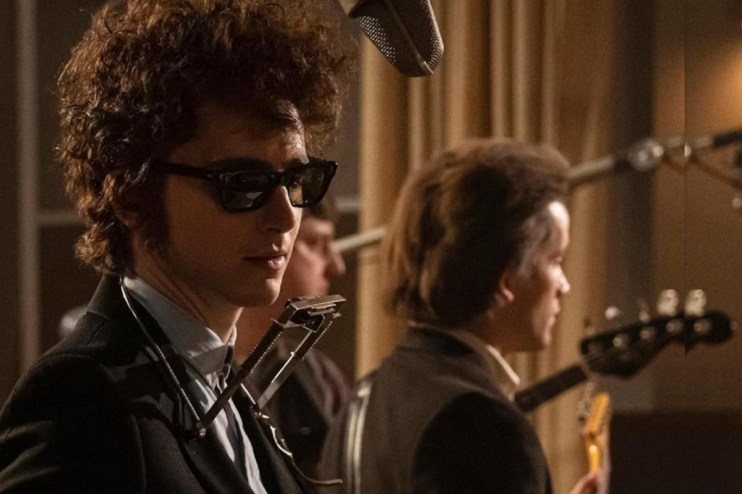A Complete Unknown review: Timothee Chalamet stars in thrilling biopic

A Complete Unknown review and star rating: ★★★★
Timothee Chalamet’s career is beginning to feel like a high-wire act. He’s a fabulous actor, but one whose off-screen cult of personality seems forever on the cusp of eclipsing his on-screen talent. I feared taking on Bob Dylan, a man who seems to vanish like a shadow when you shine a light upon him, might be the moment he fell to earth.
But in James Mangold’s biopic A Complete Unknown, Chalamet once again nails it. His mimicry borders on the uncanny, from that unmistakable, nasally drawl to the clipped mannerisms that betray a hint of vulnerability, albeit hidden beneath a mountain of precocious confidence. And the boy can sing. There are times you almost believe it’s Dylan up there. It helps, of course, that he’s singing some of the greatest songs of the 20th century, but still: if that’s where just five years of learning guitar gets you, perhaps I’ll be a rock star yet.
A Complete Unknown’s story beats will be familiar to anyone with a passing interest in popular music; no explosive revelations here. But that’s not really the point. While it’s ostensibly a Dylan biopic, charting his rise from earnest folk singer to mercurial rock ‘n’ roll genius, it’s as much about 1960s America, seen through the lens of the man who wrote the soundtrack. As Dylan careens between musical genres, friends and relationships, history unspools around him: the Civil Rights movement and the Bay of Pigs and the assassination of JFK. It’s the story of a time when modern history seemed to happen all at once, and when the soul of the West still seemed worth fighting over.
Mangold’s film is also a paean to creativity, with Dylan presented as definitive evidence of the need to keep building upon what already exists, and, sometimes, to set it all on fire in order to make something new. While the musician’s more dubious moments – cheating on his girlfriend with sometime-collaborator Joan Baez; betraying his ageing folk mentor Peter Seeger – aren’t exactly condoned, they’re painted as necessary steps in his race to remain ahead of the horizon, to innovate, to keep on moving like, hum, I dunno, a rolling stone?
Dylan’s New York City is captured in all its sumptuous, sleazy glory. Mangold creates an atmosphere that feels so scuzzily authentic you want to linger within every shot, hanging out in some dive bar on St Mark’s Place drinking bottles of PBR.
The wider cast are great fun to be around, too. Edward Norton plays folk hero Pete Seeger like a peppy children’s TV presenter, always ready with a hug and a smile, even as Dylan drifts out of his orbit. Monica Barbaro’s Joan Baez offsets her angelic voice with a kind of gruff melancholy, both in thrall to and envious of Dylan’s songwriting talent. There’s also a certain steeliness to Elle Fanning’s Sylvie Russo, a fictionalised stand-in for Dylan’s first great love, in a role that could easily have been ‘the-girl-nextdoor-who-got-away’.
It all culminates with Dylan tearing down his idols by playing rock ’n’ roll to the folk kids at the Newport festival – here an amalgamation of several real-life gigs – tracking mud across the carpets of the acoustic purists (to borrow a phrase from Johnny Cash) and burning bridges with the movement that hailed him as a messiah. It laid the blueprint for the rest of his Dylan’s career: refusing to play the hits, always working on new material, eventually filling his gigs with dense jazz and blues numbers (when I saw him at Wembley in 2017, even the handful of songs I knew were virtually unrecognisable).
The credits roll to the strains of Blowin’ in the Wind and Like a Rolling Stone, two masterpieces from deep in Dylan’s past. He probably would have hated that.
